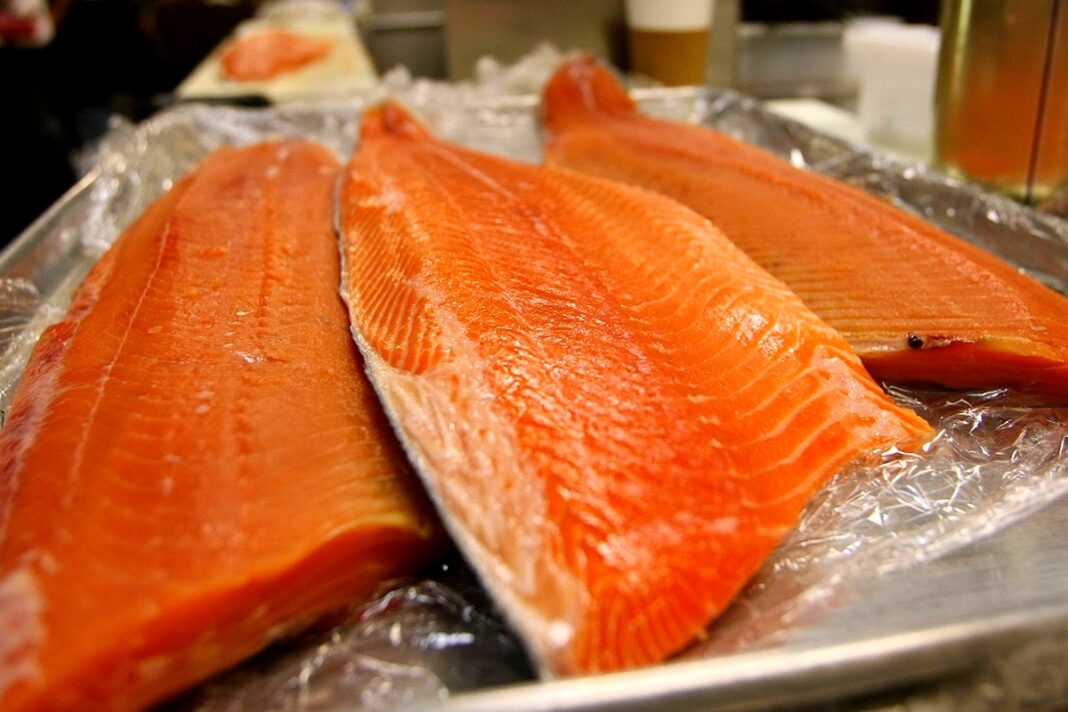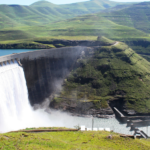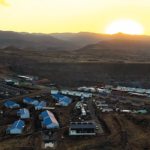Kabelo Masoabi
A South African fishery specialist, Dr. Motseki Hlatshwayo, said Lesotho holds immense potential to become a regional leader in aquaculture.
The Technical Fisheries Advisor from the Southern African Development Community (SADC) was speaking during his recent visit to the Mountain Kingdom.
Dr Hlatswayo indicated that Lesotho produces some of the world’s finest trout fish that is exported in hundreds of tones to Japan and South Africa, adding ‘the Japanese are crazy about it ‘.
Just a stone’s throw from the Katse Dam, the Highlands Trout operation has been acclaimed as an example of how Africa can benefit commercially from creative investment and utilisation of its aquaculture opportunities.
Dr. Hlatswayo went further to urge the Lesotho government and development agencies to engage more women in fish farming, citing that in other African countries, women play a critical role along the fisheries value chain utilising fisheries resources not only for economic gains but for nutritional and food security goals as well.
“It has been recognised that participation of women in collective action is a critical enabler in addressing gender inequality and facilitating necessary reforms of oppressive norms and practices.â€
“Trout farming could lead to many more jobs for those living in rural areas. One good thing about this type of business is that one can start it small from a backyard in a pond or a tank and can be grown into a money spinner,” the fishery expert said.
He continued, “For example, Nigeria’s fish farming has become like backyard garden farming. Everyone can dig a hole and keep fish in there and harvest it a few months later depending on what size of fish they want, either for personal consumption or for the market.â€
He moreover stressed the significance of bringing closer the technical aspect and training to the smallholder fish farmers saying agriculture is an area that requires technical skill.
Dr. Hlatswayo challenged the government of Lesotho to work hand in hand with the farmers and the development organisations to develop and integrate programs that can help fish farmers at vocational skill levels.
“Such trainings must focus on pond construction because it must have specifications to avoid the water being polluted and to avoid evaporation as the concentration of solids in water makes it difficult for fish to survive.
“Local farmers have to be trained in water quality management as well because water quality changes from time to time. Farmers must also be trained in fish health and nutritious feeding programs. There are also issues of predators to be dealt with,†he explained.
The advisor also clarified that addressing food security requires people to participate in numbers while fish farming requires a specific technical skill to perfect it.
He stressed that agriculture is diverse and fishery is one of the essential crops in terms of proper nutrition.
“I think within the paradigm of ‘blue transformation of food systems’ small-scale fish farmers can play a real critical role to ensure that we transform the food system. Here, the blue transformation system refers to how we can produce, manage, trade, and consume aquatic foods in order to achieve the United Nations Sustainable Development Goals or SDGs. If more investment can happen and more players can join, I am sure Lesotho can prosper in the fishery business,” Dr Hlatswayo highlighted.
According to the Lesotho National Development Corporation (LNDC), global fish consumption has increased five-fold in the last five decades resulting in aquaculture now being the fastest-growing sustainable food production sector in the world. Read: Agro-Industry Investment (emerging commercialization growth potential) www.lndc.org.ls
The report indicated a high demand for fish worldwide stating, “The demand for fish globally cannot be met by natural fisheries alone, therefore the expansion of aquaculture is inevitable”.
The report further showed that in Lesotho, fish farming plays a very important role in the development of the fisheries industries.
“Lesotho has an abundance of fresh disease-free water and fish farming has emerged as a lucrative business activity with two farms supplying the Republic of South Africa and Japan with trout/salmon. The capacity services a very small fraction of the market leaving very big room for investment in the expansion and diversification of fish species for these markets which allow for duty-free-quota free entry of fish from Lesotho,†It reads.
The current fish product stands at 300 tons of trout per annum with the potential to grow the capacity to 1,200 tons per annum, according to the LNDC report.
Summary
- Hlatswayo went further to urge the Lesotho government and development agencies to engage more women in fish farming, citing that in other African countries, women play a critical role along the fisheries value chain utilising fisheries resources not only for economic gains but for nutritional and food security goals as well.
- One good thing about this type of business is that one can start it small from a backyard in a pond or a tank and can be grown into a money spinner,” the fishery expert said.
- Everyone can dig a hole and keep fish in there and harvest it a few months later depending on what size of fish they want, either for personal consumption or for the market.

Your Trusted Source for News and Insights in Lesotho!
At Newsday Media, we are passionate about delivering accurate, timely, and engaging news and multimedia content to our diverse audience. Founded with the vision of revolutionizing the media landscape in Lesotho, we have grown into a leading hybrid media company that blends traditional journalism with innovative digital platforms.









